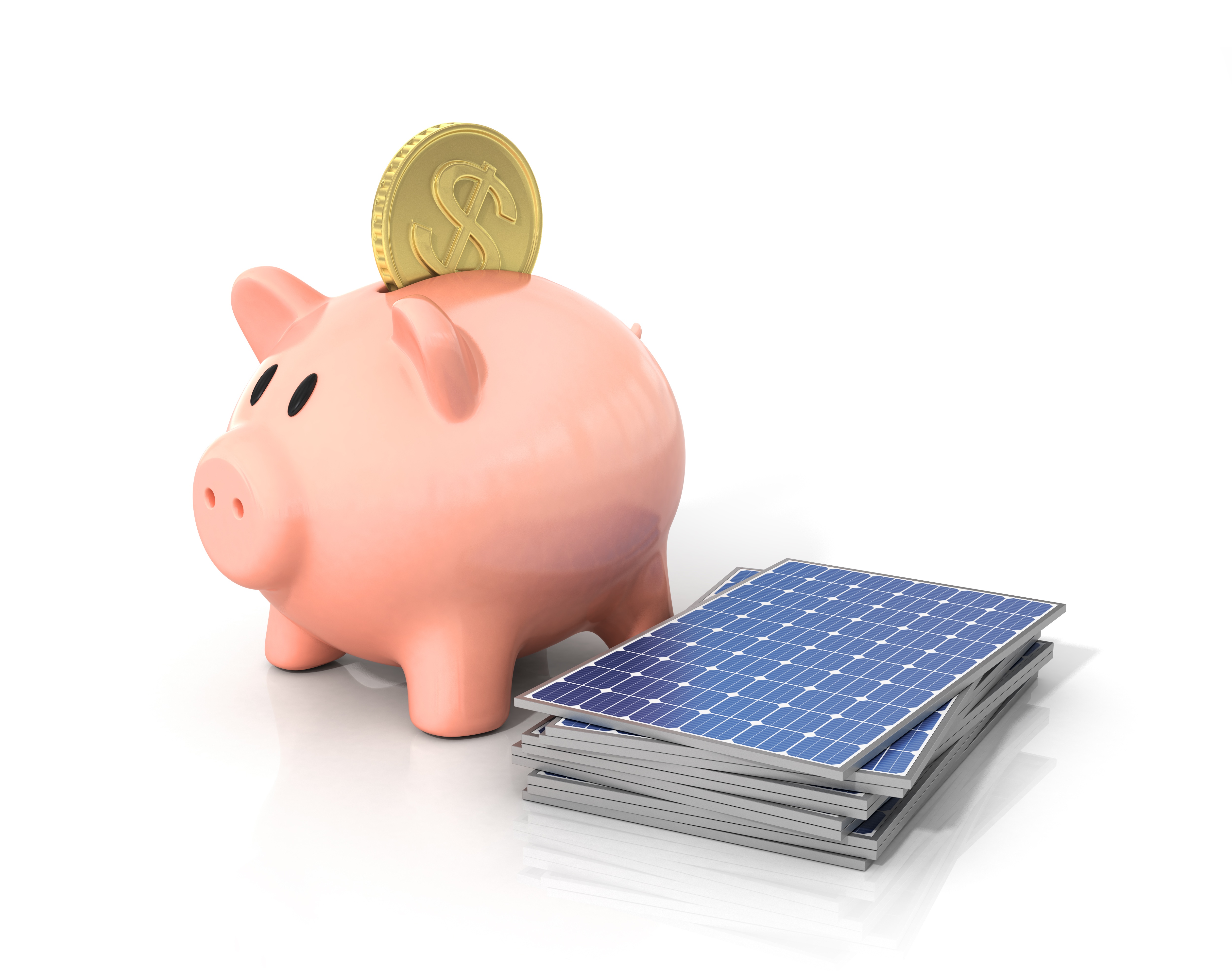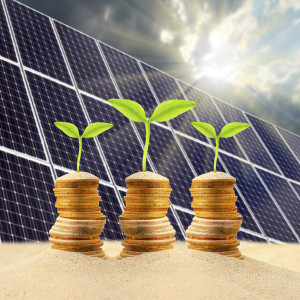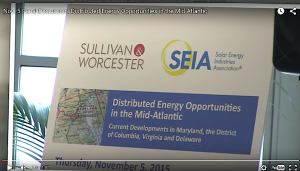As seen in the first six months of President Trump’s Administration, the country is on a rollercoaster ride. There is much uncertainty regarding the implementation of new policies and the status of existing programs throughout the government. Nowhere is this sentiment more evident than in the environmental and energy arenas. President Trump is quickly trying to undo the Obama Administration’s programs through executive orders seeking to roll back regulations; the appointment of faithful supporters of deregulatory agenda to key positions; significant budget cuts that substantially reduce agencies’ head counts and defund targeted programs; and the helping hand of a Republican-controlled Congress.
However, achieving this desired goal is easier said than done. President Trump’s objectives may be tempered by legal, procedural and resource constraints, bureaucratic resistance combined with delays in filling key agency decisions, and higher priority domestic agenda items and world events. This article will examine what already has occurred and what may be in store on significant issues involving energy and the environment. It also will highlight aspects of the Trump Administration’s deregulatory efforts and the proposed budgetary impacts.
Out of the gate, the new administration has pursued an aggressive deregulatory agenda. President Trump’s operative goal is to “deconstruct the administrative state.” His administration is building on campaign rhetoric to “roll back” “economy-choking regulations,” and implementing his campaign promise to “Drain the Swamp” by reining in and shrinking the federal bureaucracy. For example, in January 2017, President Trump issued the “2-for-1” Executive Order (EO) on Reducing Regulation and Controlling Regulatory Costs, which specifies that agencies must repeal two existing regulations for every new significant regulatory action. The EO further requires cost balancing between new and repealed regulations and a net cost of zero for any new regulations. In response, Non-Governmental Organizations (NGOs) and others, led by the Natural Resources Defense Council (NRDC), are challenging the validity of the EO in the U.S. District Court for the District of Columbia, arguing that the executive order is “arbitrary, capricious, an abuse of discretion, and not in accordance with law.” In April 2017, the Department of Justice filed a motion to dismiss the complaint on the President’s behalf, and the NGOs moved for summary judgment in May. Attorneys General from 14 states filed a brief in support of the EO. The case is in limbo, as the court has not yet ruled on the parties’ motions.
In February 2017, President Trump issued another EO, on Enforcing the Regulatory Reform Agenda, which requires designation of regulatory reform officers and task forces in all agencies and departments. Each task force must identify “all regulations that are unnecessary, burdensome and harmful to the economy.” In addition to internal deliberations, the task forces have asked stakeholders to help identify troublesome regulations. For example, the Commerce Department sought public comment on government regulations interfering with domestic manufacturing. Of the 168 comments submitted, 79 called out the EPA, the majority of which cited the Clean Air Act (CAA) and Clean Water Act (CWA).
Read More
Topics:
Energy Policy,
Environmental Policy,
Trump Administration,
Deregulatory Agenda,
Executive Orders
Co-author Morgan M. Gerard
Despite the low price of oil throughout the year, 2015 may have been an inflection point for renewable energy as a competitive generation source in the U.S. Deutsche Bank has noted that renewable sources, like solar, have reached, or will soon reach, grid parity with fossil fuel sources in many states. As non-fossil energy has become more economically viable, the industry has responded by standardizing and streamlining project processes, and by accessing financing vehicles like yieldcos and public bonds. Despite growth, the past year has also been a tumultuous one full of unexpected developments and policy shifts including the COP 21 agreement and the Clean Power Plan (CPP), and the formation of intriguing grassroots coalitions, like the green tea party. All of these developments were, of course, set against the specter of a potential step-down of the Investment Tax Credit (ITC), and its surprising last-minute revival. The following is a breakdown of some of the major developments impacting renewables in 2015.
Read More
Topics:
NY REV,
Energy Policy,
Energy Finance,
Distributed Energy,
YieldCo,
Solar Energy,
Renewable Energy,
Wind,
COP21,
Renewable Energy 2015,
Distributed Energy Resources,
CPP,
Green Tea Party,
Net Metering,
Net Energy Metering,
NEM,
DG,
Energy Project Finance,
Renewable 2015,
Green Energy,
Green Energy 2015,
Solar Energy 2015,
DER,
Offshore Wind,
Clean Power,
clean power plan,
Georgia Solar,
2015,
energy,
Wind Energy,
Energy Project,
Green 2015,
California DRP
Co-author Morgan M. Gerard
Many of the polices that helped enable the proliferation of rooftop solar installations in California, specifically net metering at the retail rate of electricity, have been preserved by the state’s Public Utilities Commission (CPUC), at least for the time being. Although net metering has come under fire in recent years, the Commission in a proposed decision issued this past Tuesday, sided with the solar industry despite utility claims that rooftop generators are overcompensated for their electricity, and do not share in covering the maintaining costs of the grid.
Read More
Topics:
Energy Policy,
Distributed Energy,
Solar Energy,
Renewable Energy,
Net Metering,
Net Energy Metering,
California Public Utilities Commission,
NEM,
CPUC,
DG,
Time of Use Pricing,
TOU,
Distributed Generaton,
Distributed Resource Plans,
DRP
The scheduled stepdown of the solar Investment Tax Credit (ITC) from 30% to 10% at the end of 2016 has become a bit of a political football among the pro-solar crowd. Even mentioning the possibility of a stepdown occurring can lead to accusations of negativity from extension advocates. However, despite the negative connotations of discussing the ITC in the context of a decline rather than an extension, it would behoove participants in the solar markets to at least consider what life at 10% could mean to them. That is particularly true after a whirlwind of a week in Washington that, if anything, has made the fate of the ITC murkier than ever.
Read More
Topics:
Energy Policy,
Energy Finance,
Solar Energy,
Renewable Energy,
ITC,
Investment Tax Credit
“Never have the stakes been so high because this is about the future of the planet, the future of life” notes French President Francois Hollande with respect to the 21st Session of the Conference of the Parties (COP 21). Representatives from more than 190 nations are currently gathered in Paris to discuss a possible new global agreement on climate change, aimed at reducing greenhouse gas emissions. Global emissions have steadily increased over the past 15 years, but according to a study, published in the journal Nature Climate Change and presented at COP 21, global emissions from fossil-based fuels and industry are likely to have fallen 0.6 percent in 2015, even as the world’s economy has grown. The representatives attending the conference hope to capitalize on this opportunity and continue the work to reduce emissions.
Read More
Topics:
Energy Policy,
Renewable Energy,
COP21
I moderated a panel at MDV-SEIA’s Solar Focus event to discuss what is arguably the hottest, most impactful topic in the solar space today – the Investment Tax Credit (ITC), and specifically, its scheduled step-down at the end of calendar year 2016.
The ITC is a controversial topic. Arguably, and while this is probably not a popular opinion among readers of this page, the 30% ITC may have run its (very successful!) course. Hardware and install prices have plummeted in recent years. Traditional capital markets are being accessed through bond offerings and YieldCos. Even stodgy holdout utilities in the southeast are becoming more active in the solar space. More solar has been built in recent quarters than any other generation type.
And yet . . . solar remains a small part of the overall generation mix, and many states, including those with great insolation numbers, remain untapped markets. Some have estimated that up to one hundred thousand jobs might be in jeopardy if the step-down occurs. An ongoing 30% ITC would make it easier for many states to comply with their potential Clean Power Plan (CPP) obligations. The U.S. is arguably at the cusp of a real shift in its energy mix that might be delayed, if not derailed, if the credit is not extended.
Read More
Topics:
Energy Policy,
Structured Transactions & Tax,
Energy Finance,
Legislation,
Distributed Energy,
YieldCo,
Solar Energy
YieldCos have been hammered lately, both in the stock market (though things have recently been picking up) and in the press. The reasons are myriad with theories addressing MLP values, rising interest rates, negative public statements from management teams, a slowing Chinese economy, lower oil prices, capital constraints and YieldCo disassociation from parents entities all being floated as potential reasons for recent losses in shareholder value.
Read More
Topics:
Energy Policy,
M&A,
Structured Transactions & Tax,
Power Generation,
Energy Finance,
Distributed Energy,
YieldCo,
Solar Energy,
Renewable Energy
As energy infrastructure is adapted to achieve greater energy efficiency and resiliency to combat threats from storms to terrorism, distributed generation (DG) has emerged as an opportunity for investors and developers who want to play a part in the modernization.
On November 5, 2015, Sullivan and Worcester and SEIA co-hosted a roundtable discussion to explore DG opportunities in the D.C., Maryland, Virginia and Delaware region. The panel was comprised of industry experts with diverse perspectives, and included Maryland PSC Commissioner Anne Hoskins, Dana Sleeper of MDV-SEIA, Anmol Vanamali of the DC Sustainable Energy Utility, Bracken Hendricks of Urban Ingenuity and Rick Moore of Washington Gas (WGL).
Read More
Topics:
Energy Policy,
Energy Efficiency,
Energy Finance,
Distributed Energy
The Mid-Atlantic region (Maryland, Delaware, Virginia and the District of Columbia) is currently at the forefront of discussions regarding the next generation of distributed electricity markets. Notable developments pushing the region into the spotlight recently include M&A activity, creativity on the part of public service commissions, local innovations in PACE finance, and increasing flexibility on the part of local utilities.
Read More
Topics:
Water Energy Nexus,
Utilities,
Water,
Carbon Emissions,
Energy Security,
Thermal Generation,
Energy Policy,
M&A,
Structured Transactions & Tax,
Energy Storage,
Energy Efficiency,
Power Generation,
Microgrid,
Energy Finance,
Distributed Energy,
Energy Management,
Solar Energy,
Renewable Energy,
Wind,
Oil & Gas
The word on the street is that completion risk heading into the scheduled, dreaded investment tax credit (ITC) step down is already becoming an issue for solar developers. In short, there is a general fear on the part of market participants that solar projects currently in development won’t meet the IRS’s qualifications for being placed in service before the end of 2016, when the ITC is scheduled to decline from 30% to 10%. This would make many projects in the current environment economically unviable.
Read More
Topics:
Energy Policy,
Structured Transactions & Tax,
Energy Finance,
Distributed Energy,
Solar Energy,
Renewable Energy










.jpg?width=220&name=Sullivan%204c(B2402503).jpg)